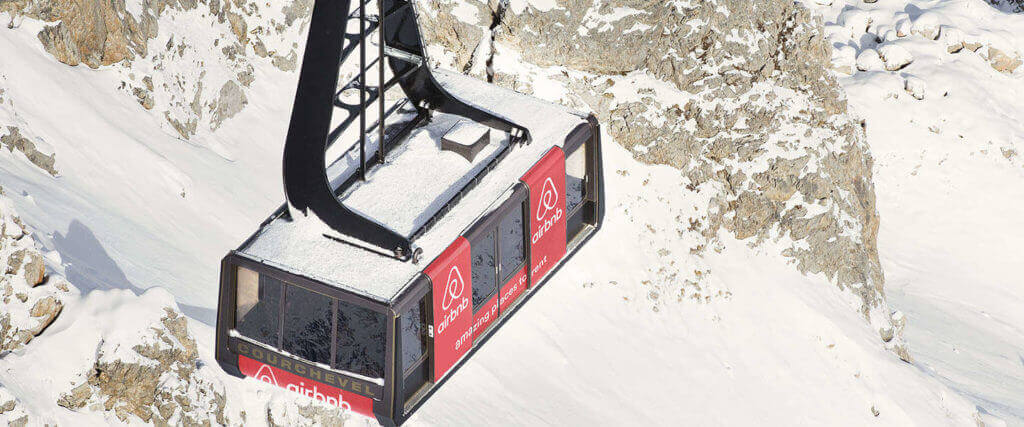
Valuation professionals specializing in hotels commonly receive questions about the impact of Airbnb’s growing popularity on the established hotel industry. For years, many within the profession shrugged off Airbnb as an outlier or a fad that would come and go like so many companies that are no longer with us. But it has demonstrated its staying power so far and recent reports are hailing the company as a “disruptor” and one of the most valuable startups in the world.
As it looks at the possibility of a blockbuster IPO in 2017, the time to look into the impact of this company has arrived. Its currently ski season and to narrow the focus a bit for more meaningful results, this analysis seeks to understand the effect of Airbnb on the ski resort market in Colorado.
HOW AIRBNB STACKS UP AGAINST HOTELS
Before examining the impact on Colorado ski resorts, some overall perspective on Airbnb vs. the hotel industry will be useful. As of July 2016, Equidate reported an estimated market value of $29.6 billion for Airbnb, up from $13 billion in October 2014 with more than $2 billion in capital raised during that timeframe. Recently, the Wall Street Journal reported a market valuation of $31.0 Billion due to an additional $150 million in raised capital. Their report suggests the new funding may allow Airbnb to remain private, rather than going public. Regardless, Airbnb’s value is now higher than the market capitalization of any other major hotel chain.

The data above is both startling and compelling — but to what extent will the impact of Airbnb’s growth be felt? To answer this question, Smith Travel Research (STR) performed a study on the Airbnb phenomenon in 13 global markets. They summarize several key points from their research illuminating:




